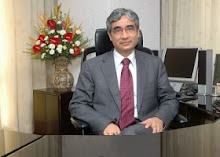Vithal C Nadkarni
In 1887, in a defiant gesture against the new-fangled culture of speed that was gathering momentum all around him, philosopher Friedrich Nietzsche branded himself as a ‘teacher of slow reading’. The poet of uncertainty conceded that his taste for slowness might appear ‘perverted’ and it could drive to despair everyone who is in a hurry. But he stood unmoved by the side of his ‘leisurely art of the goldsmith applied to language’, urging his readers to read slowly, profoundly, attentively, prudently, with inner thoughts, with the mental doors ajar, with delicate fingers and eyes.
In the following years, the culture of speed has spread relentlessly. As science writer James Gleick says in Faster: The acceleration of just about everything, “Societies are in overdrive with no sign of braking. In elevators, we maniacally smack the Door Close button in the hope of saving some seconds. Politicians average 8.2 seconds to answer a question.
“Top industries are hiring on the basis of quick wits. A buffet in Japan charges by the minute. And the most advanced cases of ‘hurry sickness’ punch 88 seconds on the microwave instead of 90 because it’s faster to tap the same digit twice... yet for that increasing speed, there still seems to be less and less time to spare.”
A backlash has begun, but slowly: a phenomenon called Slow Living has groups such as Germany’s Society for the Deceleration of Time. There’s Italy’s Slow Food, Slow Cities and even Slow Sex movements. The latter draws some inspiration from Tantrik cults that flourished in ancient India and which were notorious for their obsession with cheating time or death (Kala).
These have now been joined by the Slow Reading Movement. The year began with the hoisting of the Slow Flag and The International Day of Slowness.
This is described as a manifestation against haste; a day of hospitality, love and kindness; of recovery against greed and hatred, an opportunity for reflection; for dialogue, and a starting point for a slow society.
It rests on the premise that only a reflective society can anticipate and adapt to crises. Proponents believe that only a slow society can be in harmony with a slow planet. But what if that distinction were to be one huge mental illusion? That’s the electrifying message of The Yoga Vasishta: that there are no causal relationships at all, only indivisible reality as consciousness.
cosmic uplink / economic times





No comments:
Post a Comment